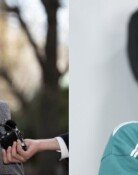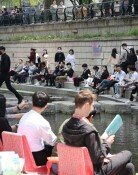[Editorial] Economic Policies Criticized by Ruling party
[Editorial] Economic Policies Criticized by Ruling party
Posted June. 06, 2005 06:25,
There was harsh criticism over the failure of economic policies that were involved or initiated by presidential committees in the joint workshop of the ruling party, government and Cheong Wa Dae, The association of senior officials of the ruling party and the government and in many interviews of ruling party members. Previously, Lee Jung-woo, chief secretary to the President for National Policy, called criticism by media outlets as committee bashing by the media, saying that the fact that there are many amateurs in the committee gives us hope. Now he has to find ways to respond to the criticism by the ruling party on temporary expedients, abuse of authority, and a lack of expertise in economic policies by the committees.
Rep. Jung Jang-sun of the Uri Party said, The huge projects by the government only led to real estate inflation, which the government tried to resolve through regulations and tax measures. It is a vicious cycle. The cases of economic policy failures include the Presidential Committee on Northeast Asian Cooperation Initiatives development project on Haengdam Island in South Chungcheong Province, a proposal by a special committee of small- and medium-sized enterprises to introduce certificates for small businesses, job creation policies by the Presidential committee on balanced national development, and policies on the metropolitan area that do not consider economic growth.
Many ruling party members pointed out that the committees are largely comprised of professors who are idealistic and progressive, leading to a lack of suitability and practicality. The current government seemed confident in achieving dual goals of growth and distribution with many roadmaps produced by the committees, but growth has been sluggish, and bipolarization has aggravated.
The logic from Cheong Wa Dae that amateurs give us hope is also inviting criticism from economic players. The former professors who do not have enough experience in complex administrative affairs are not only influenced by the opinions of the president with biased logic, but are also intervening in the affairs of government offices. No wonder national affairs are now facing difficulties.
President Roh should make bold moves to restructure the committees, reflecting advice received from ruling party members. Trial and error can be avoided only when experts with more experience and realistic views handle national affairs. The ruling party cannot avoid blame just by criticizing Cheong Wa Dae. The ruling party is not free from the fact that it assisted unrealistic policies by the committees and moved the nation into confusion by ideological controversies that are distant from the lives of the citizens.







